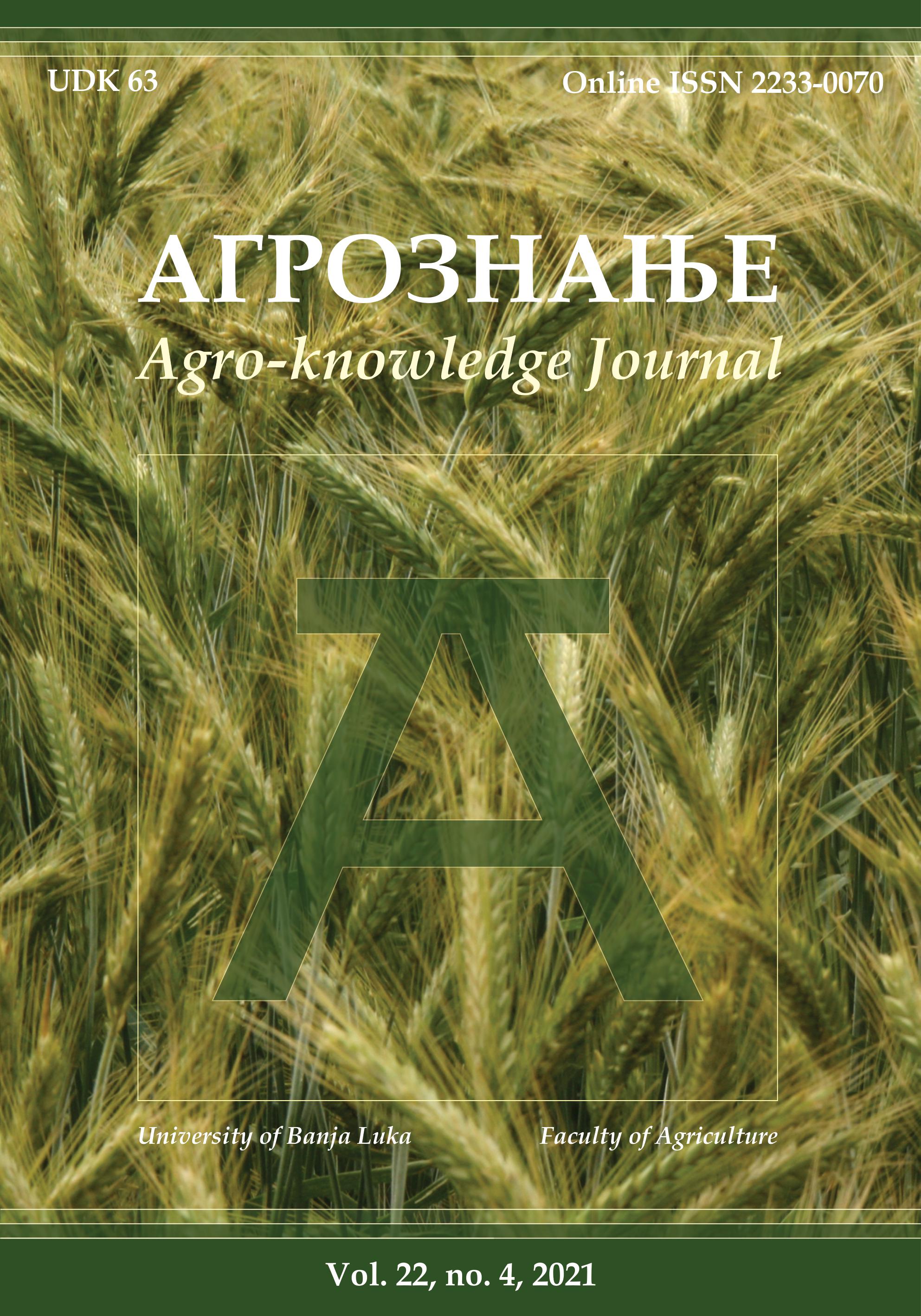Tropane alkaloids in mint teas at the Serbian market
Присуство тропанских алкалоида у чајевима од нане на тржишту Србије
DOI:
https://doi.org/10.7251/AGREN2104117VAbstract
The interest in tropane alkaloids as food contaminants has been increasing. The tropane alkaloids are plant toxins that mainly occur in Atropa, Datura and Hyoscyamus sp belonging to the Solanaceae family. A sensitive and selective LC-MS/MS method was applied for the analysis of atropine and scopolamine in the mint tea samples from the Serbian market. Tea, which has beneficial properties thanks to the phenolic compounds, can be accidentally contaminated by many weed seeds which contain the tropane alkaloids during the harvest. Only the tropane alkaloids present in the tea bags before the tea making were analysed. Atropine and scopolamine were detected in 30% of the analysed samples in the concentration above the limit of quantification.
Key words: atropine, scopolamine, mint tea

